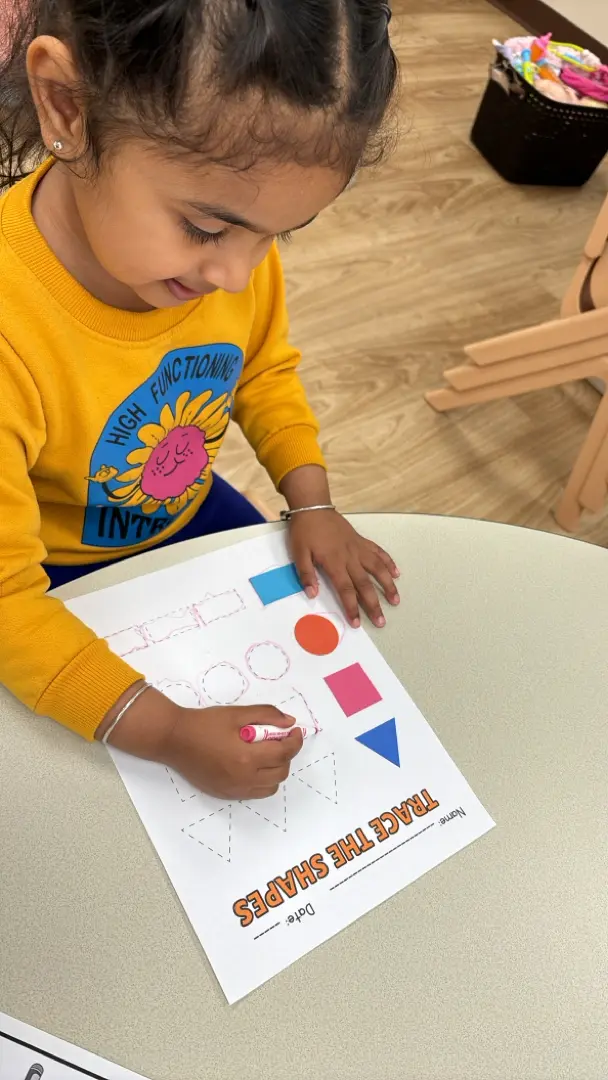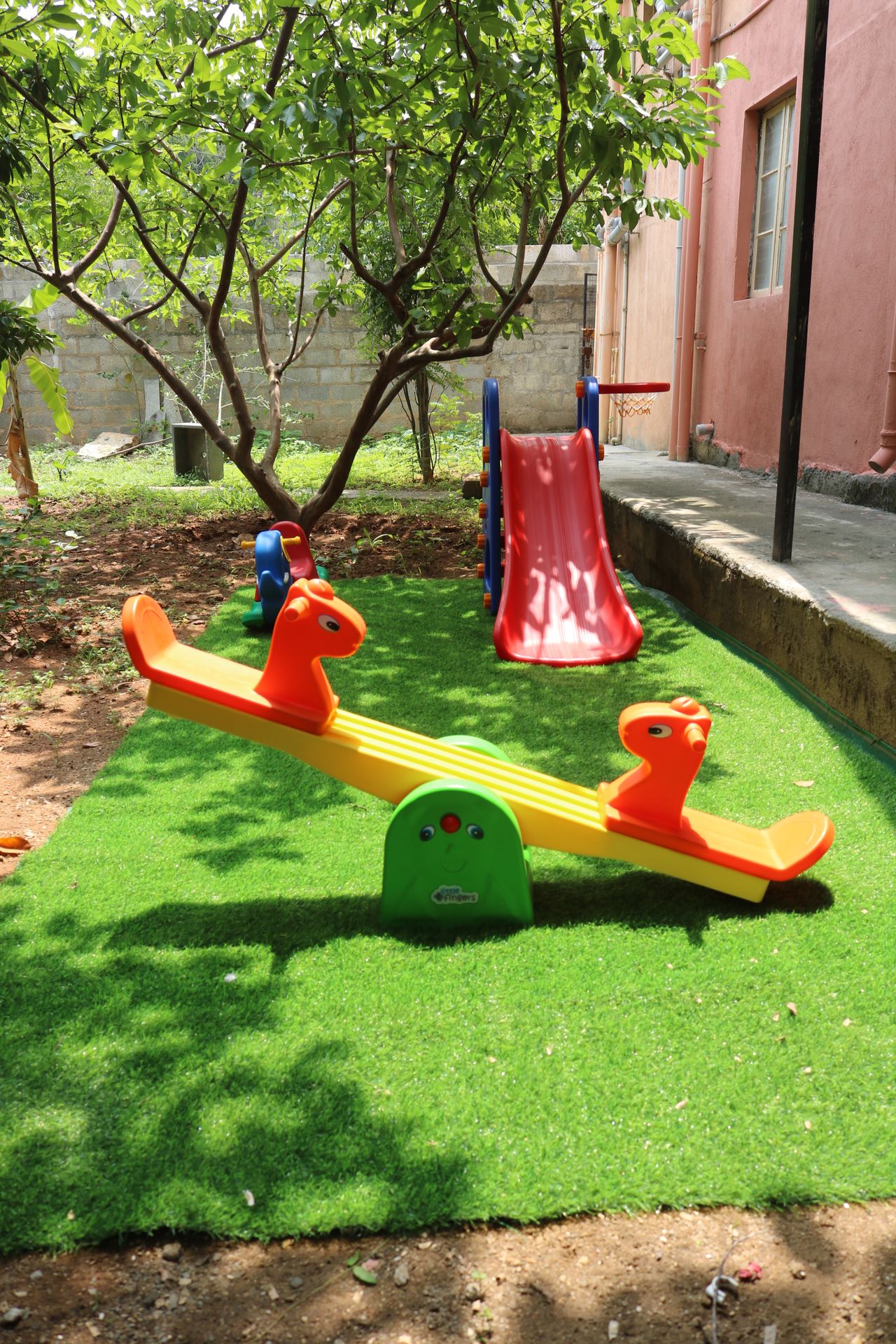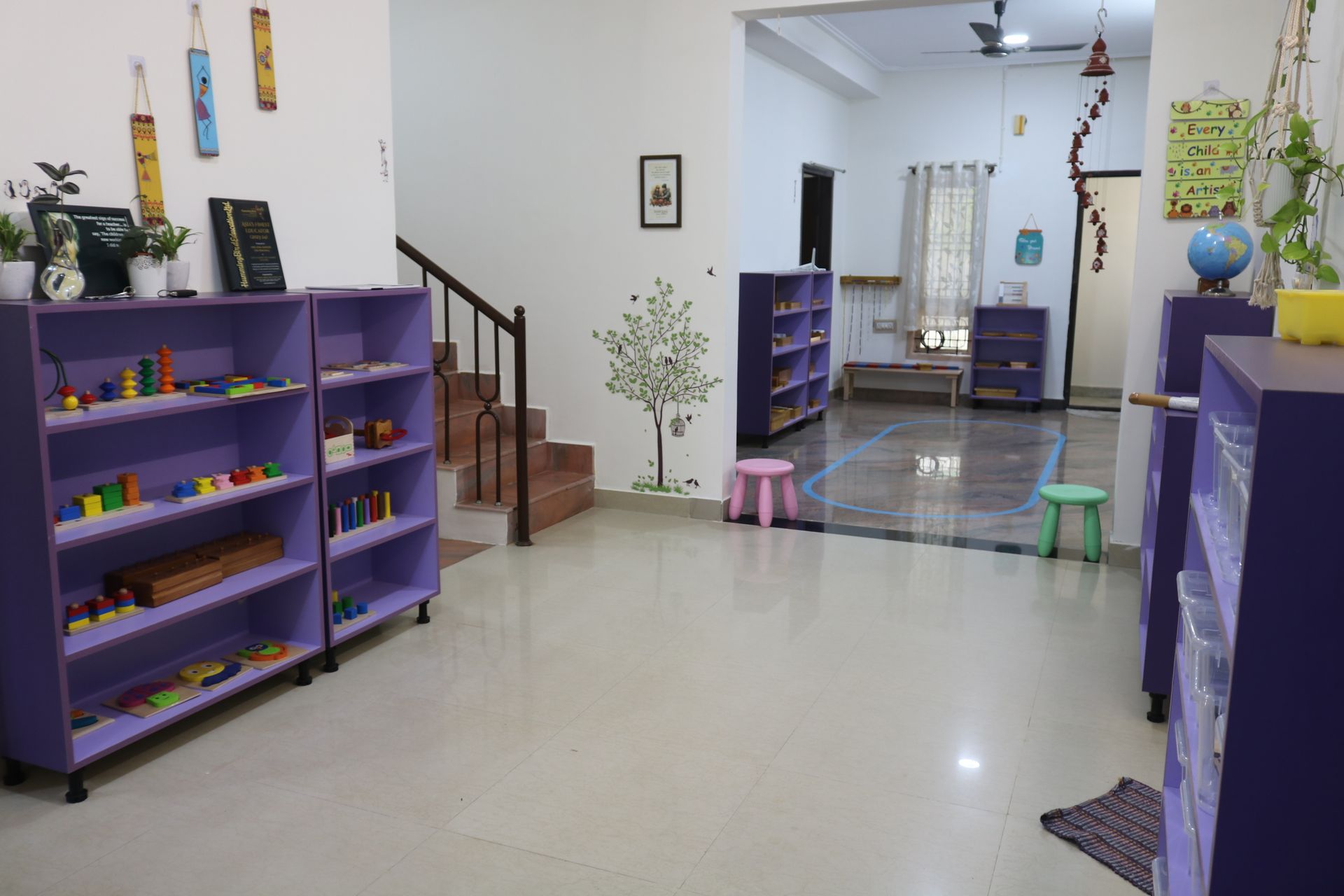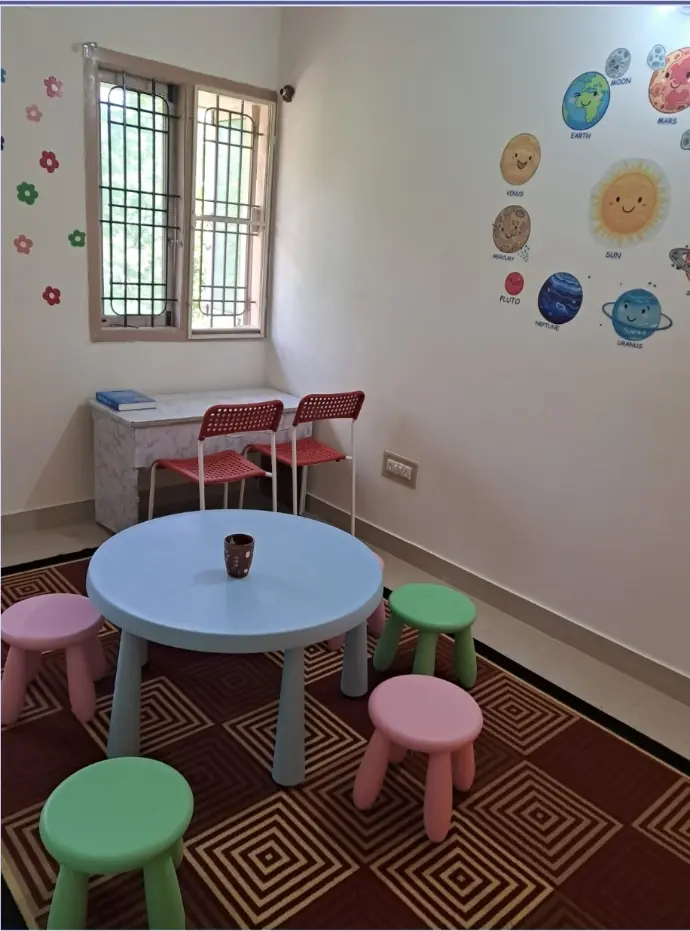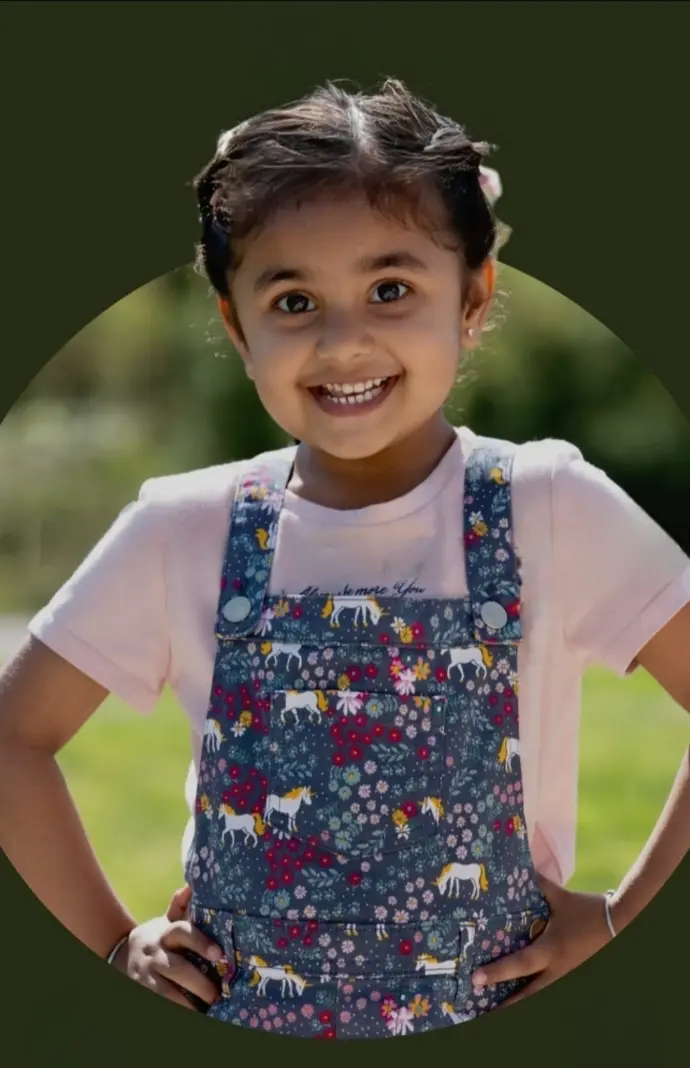Montessori
"Childhood is not a race to see how quickly a child can read, write, and count.
Childhood is a small window of time to learn and develop at
the pace which is for each individual child."
Magda Gerber-
Our Programs:
Mettaā Montessori offers a child-centric approach to early education, emphasizing hands-on learning, self-directed activity, and collaborative play. Our programs are tailored to support the developmental stages of children, fostering independence and a love for learning.
Our Facilities:
- Spacious Classrooms
- 1: 8 Teacher Student ratio
- Thoughtfully Curated Library
- Certified Faculty
- Caring Helpers
- Large Play area
- Hygienic environment
- Reliable transport Service
- Flexible Daycare Facility
Creative Clubs
Where every child discovers, creates, and expresses through joyful learning.
Desk to Discovery
Consistent curiosity-building activities that help children explore concepts with confidence.
Nature & Gardening
Hands-on nature learning that teaches care, responsibility, and love for the environment.
Music & Rhythm
Engaging musical experiences that enhance coordination, listening, and creative joy.
Little Chef
Fun cooking-based learning that develops independence, real-life skills, and sensory awareness.
Art & Craft
Creative expression that encourages imagination, fine motor skills, and sensory exploration.
Drama & Expression
Interactive activities that build confidence, communication skills, and emotional awareness.
Reading
A nurturing reading environment that builds comprehension, vocabulary, and lifelong love for books.
Storytelling
Imaginative story sessions that boost language development, creativity, and meaningful expression.
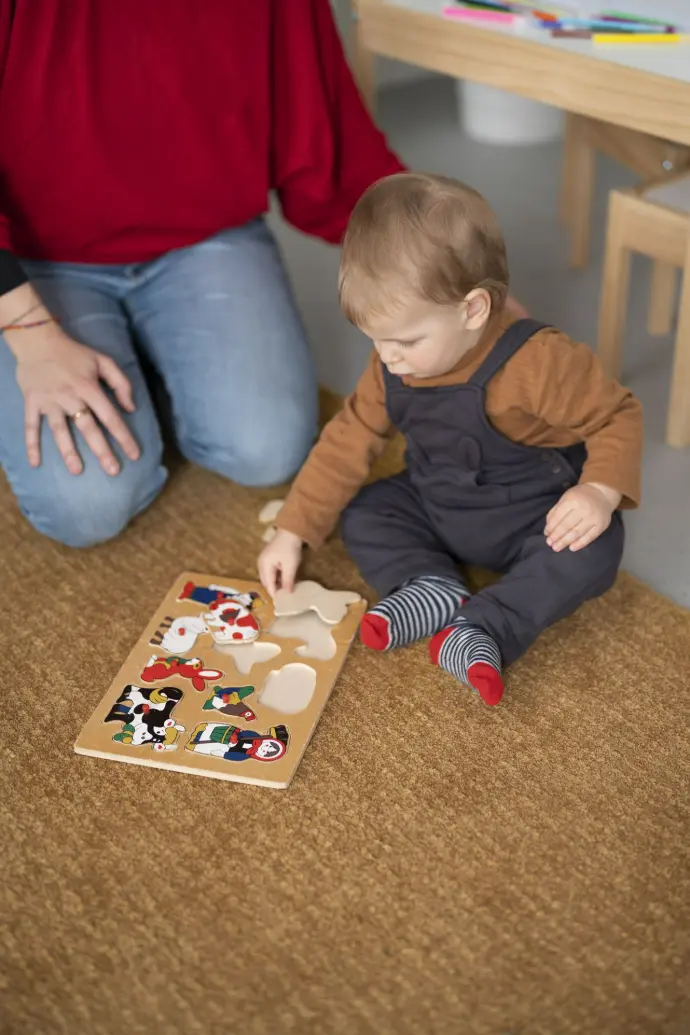
Toddler Program
(2-3 Years)
A gentle introduction to learning beyond home, focusing on self-expression, exploration, and social bonding.
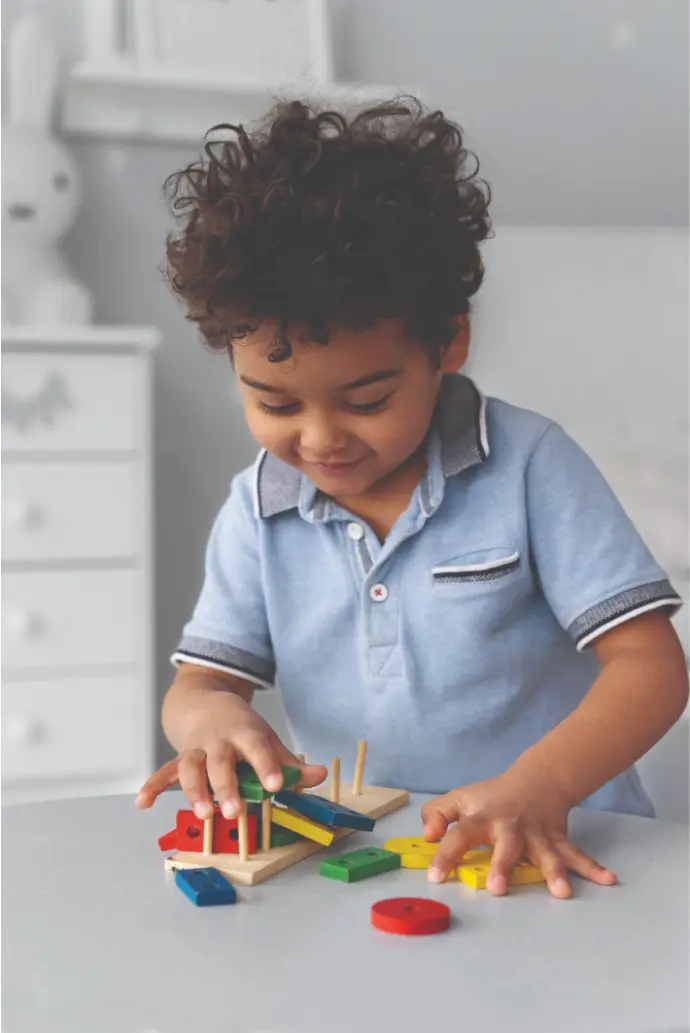
Mont- 1
Program
(3-4 Years)
Physical, sensory, and language development through playful activities that spark curiosity and build confidence
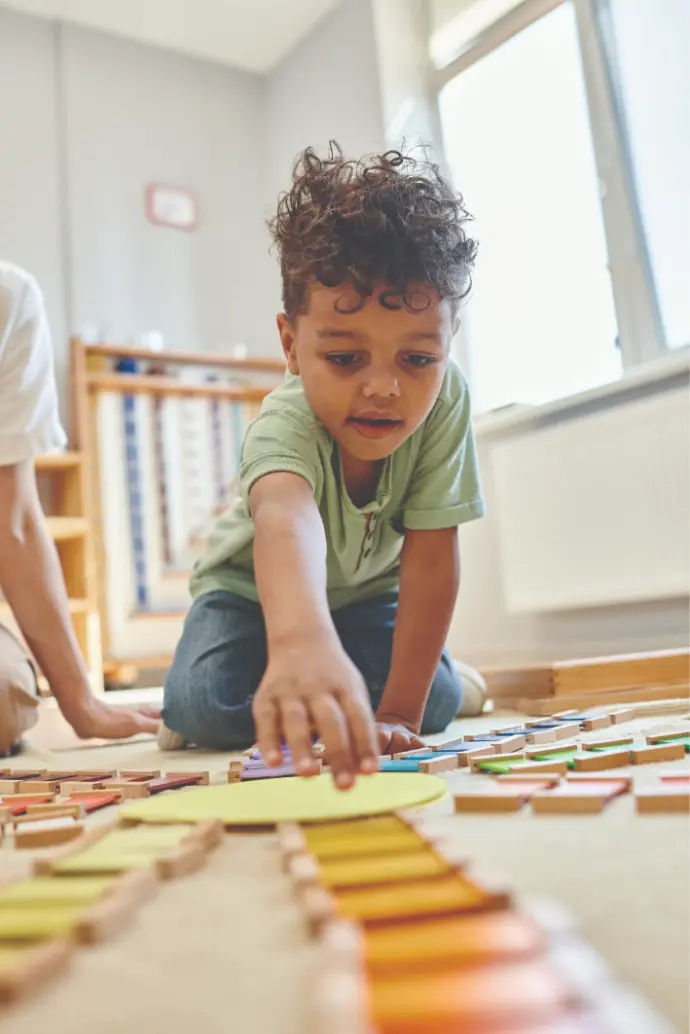
Mont -2 Program
(4-5 Years)
Builds vocabulary, social skills, and early numeracy — helping children engage in confident communication and discovery.
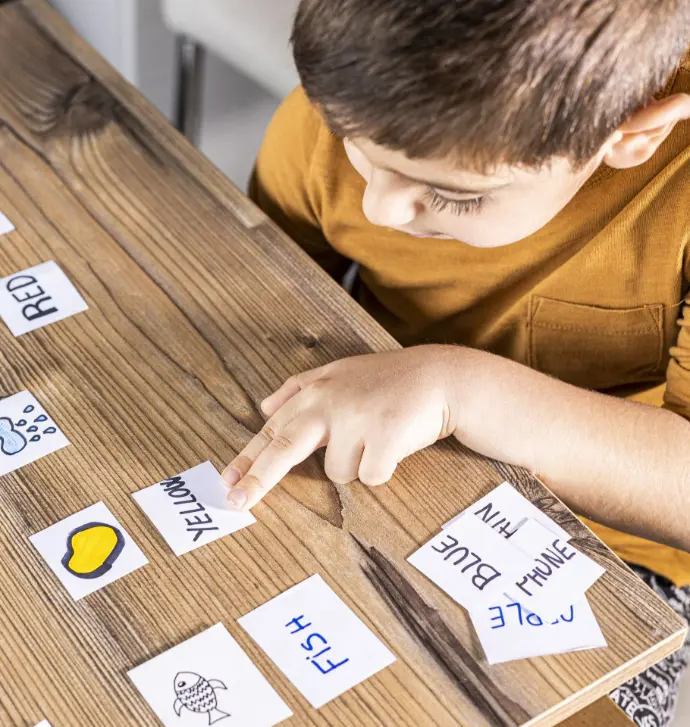
Mont -3 Program
(5-6 Years)
Promotes independent learning using Montessori materials, nurturing focus, creativity, and a love for learning.
Montessori
Objectives of Montessori education:
Montessori education offers several advantages over traditional nursery (preschool) education, especially in fostering independence, focus, and a lifelong love for learning.
Key advantages of Montessori education:
- Each child learns at their own pace; fast learners can progress further, while others get time to master a skill.
- Reduces pressure, frustration, and competition. Encourages mastery instead of memorization.
- Children choose their own activities and learn to take care of themselves and their environment (e.g., pouring water, tying shoes).
- Builds confidence, decision-making skills, and responsibility from a young age.
Children are encouraged to work uninterrupted for long periods, choosing tasks they find engaging.
Develops focus and perseverance—skills that are crucial for academic and personal success.
Younger children learn from older ones; older kids reinforce their knowledge by teaching others.
Promotes empathy, leadership, collaboration, and community.
Emphasizes "practical life" skills(cleaning, cooking, caring for plants/animals).
Helps children feel capable, included, and better prepared for real-world responsibilities
Teaching aligns with sensitive periods of brain development and natural curiosity.
Supports whole-child development—intellectual, emotional, physical, and social.
